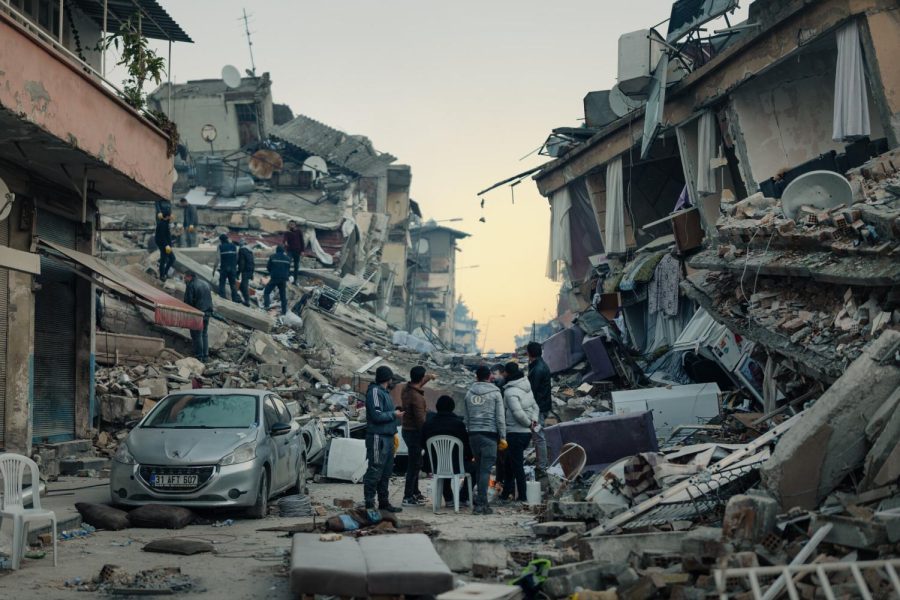Turkey and Syria Recover from Magnitude 7.8 Earthquake
March 14, 2023
On February 6th, Turkish and Syrian citizens were awakened at 4:17 AM local time by a disastrous earthquake. The magnitude of the earthquake hitting southeast Turkey and northwest Syria was estimated to be 7.8 on the Richter scale ranging from 2.5 to 8. It is considered the strongest earthquake Turkey has experienced since 1999 and the most damaging catastrophe Syria has seen in almost a century.
While Turkey is prone to minor earthquakes, the strength of this one was greatly unexpected, with the death toll surpassing 35,000 in both Syria and Turkey. Following the roughly 30-second-long earthquake, its twelve aftershocks, and the other, more recent earthquakes, the politics lying behind the government’s aid in both Syria and Turkey are preventing citizens from recovering from the impacting damage.
In northwestern Syria, an area not controlled by the Syrian government, citizens receive their aid from the Turkish border, which was unable to provide aid during this time. Nearly 25% of Syria’s population lives in this 4% of Syrian land. They were the hardest hit, especially considering their reliance on humanitarian aid long before the earthquake.
Citizens were also concerned about United States’ sanctions aimed at Syria restricting the aid they provide. However, the US’s Deputy Secretary of the Treasury asserted that this will not apply to this situation. Instead, the US “issued a six-month sanctions exemption for all transactions related to providing disaster relief to Syria,” according to Al Jazeera.
As the United Nations sends aid to Syria, many have been questioning whether or not the aid is truly reaching the citizens. Although Syrian president Bashar al-Assad “issued a three-month authorization for UN aid deliveries to pass through,” according to Human Rights Watch, this decision was made over a week after the disaster. As a Syrian citizen that lived through the tragedy, Manan Zada discussed the shortcomings of the Syrian government to the Register Forum: “The government tried to do what it could, but they need to do more, and provide shelters and food.” He continued, “In the end, people’s efforts were unbelievably more effective. They helped each other most, giving out food, clothes, blankets, money, etc.”
In comparison, the Turkish government has been much more responsive. After millions lost their homes, the government has been building temporary shelters in a parallel city. Sa’ad Rustom, a Syrian living in Turkey, explained the situation in more depth to the Register Forum, “The Turkish government’s aid has been very effective and impactful to the families who lost the most. They’ve set up tents and opened up kitchens to distribute food.” Rustom continued, “In my opinion, the Syrian government needs to put all their resources to help take care of the people.”
The White Helmets, also known as the Syrian Civil Defense, have also played a significant role in helping victims as they volunteer to remove people from the rubble in northwestern Syria. Local organizations across the world, especially in Cambridge and Boston, have opened daily clothing and food donation drives and are shipping them to Turkey and Syria as well. Although despotic regimes and political tensions have restricted a lot of help from reaching citizens, there are plenty of opportunities to get involved, help, donate, and encourage others to do the same.
This article also appears in our February 2023 print edition.










